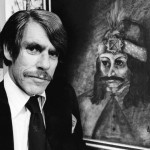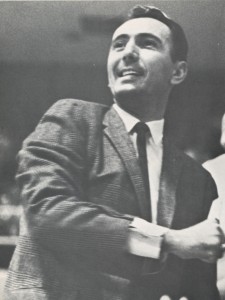One of BC’s most well-known and colorful faculty members of the ’70s and ’80s has died. Radu Florescu, professor of history emeritus, was 88 and had taught at the University for 45 years before retiring in 1998. Along with his faculty colleague, Raymond McNally, he co-authored In Search of Dracula in 1972 and the book propelled both of them into popular culture of the time.
“It has changed my life,” he said to the New York Times in 1975. “I used to write books that nobody read.”
A noted scholar of the Balkans, Florescu was born in Romania and left that country at the outbreak of World War II. He learned in his research that he had a family connection to Vlad Tepes, a 15th century nobleman known at the time as “Vlad the Impaler,” for his preferred method of dispatching enemies. Florescu and McNally found links between Vlad and the Dracula of lore.
In Search of Dracula and several subsequent books on the same or similar topics led to an appearance on The Tonight Show Starring Johnny Carson and interviews and appearances at numerous conferences and events. Prof. Florescu would occasionally attend wearing a long cape.
New York Times obituary
Boston College obituary
In addition to his widow, Prof. Florescu is survived by his children: Nicholas ’74, John ’76, Radu ’83, and Alexandra Lobkowicz ’85.


